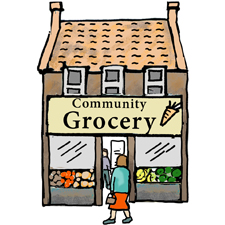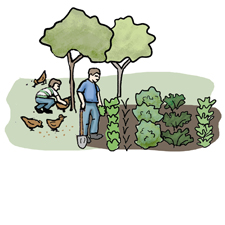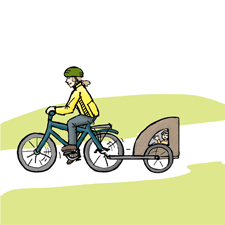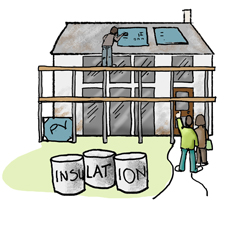Neighbours Together: Facilitated and supported households to;
- assess their household carbon emissions;
- identify their household aims, objectives and develop action plans for reducing their carbon emissions and be more resilient by e.g. making their homes more energy efficient, reduce food miles and food waste, make it easier to walk, cycle and use public transport;
- work together with people in their locality to develop and implement neighbourhood action plans for improving household energy efficiency, grow more of their own food, reduce food waste through composting, make their streets safer for walking and cycling and to make it easier to use public transport for more of their journeys;
- involved 121 households and 10 neighbourhood groups to do the above; documented the process and outcomes of the project;
- The project has started to establish baseline measurements of household C02e emissions, levels of awareness and aspirations which can now be monitored and evaluated over time (from 2009 to 2015);
- Started to monitor and evaluate household Co2 e emissions, levels of awareness and aspiration change;
- A raised awareness has started amongst a wide cross section of the ward population of the challenges that lie ahead;
- A wider cross section (age, gender, locality) of people in the ward have been engaged and participating with projects contributing to household C02 reductions and local resilience;
- Effective links and connections between neighbours, among local community groups, with local schools and East Lothian Council have been started;
- The opportunities that can be gained from a low carbon economy are starting to be better understood;
- More areas of land are being used and/or are being planned to be used to grow food;
- Less household food waste is going to landfill and more composting is starting;
- There are more people walking and cycling and using public transport where possible for them to do so;
- Neighbourhood plans for making streets safer for walking and cycling and as social spaces have started;
- More households are starting to take action to reduce their home energy consumption while making their homes more comfortable and reducing their reliance on fossil fuels;
- More households have received energy audits;
- We are starting to get a better understanding of how we can start to meet more of our local needs from local resources and start to put in place the support infrastructure needed to create a resilient local economy;
- People starting to have a better understanding of the opportunities for individuals and groups to start and develop new enterprises such as making thermal curtains, selling more local food, making jams and preserves, draught busting;
- Started the sharing of knowledge, practical skills and resources in neighbourhoods; and,
- Have started to develop a dialogue with teachers, parents and children about the need for household C02 reduction and local resilience and how these topics could be integrated into Curriculum for Excellence and the achievement of Schools’ Green Flags




